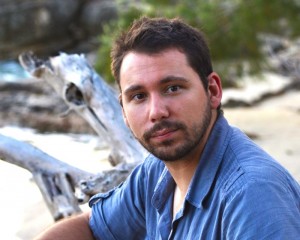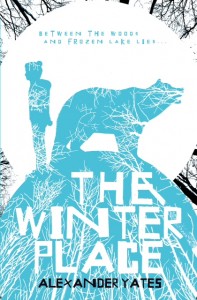Where do you find inspiration for your books?
It depends on the book, but my inspiration usually comes from some combination of what I’m reading, and where I am (both physically and emotionally) at that point in my life. Lately I’ve found myself going back to a lot of the fantasy classics that I enjoyed when I was younger (Tolkien, Holdstock, Richard Adams). My wife is from Finland, so in addition to travelling there regularly I’ve also been reading a lot of Finnish literature and mythology. It’s that particular combination of inspirations that seeded The Winter Place. But for my next book, the inspiration will look very different!
Do you try and read the online reviews you get on say Waterstones website?
I actually try my hardest not to. I find online reviews to be a bit of a rabbit hole. When my first book came out, I could disappear down that hole and emerge an hour or so later, dazed and anxious and craving cake. I have never once finished up reading reviews (even splendid, glowing ones) and thought to myself: “Alright, outstanding, now let’s get to writing!” So I’m trying to stay away. But naturally, it’s difficult.
Is there anything you wouldn’t write about?
No. Or, more precisely, there’s no subject I wouldn’t at least try writing about in the quiet safety of my own room. But that isn’t to say that the writing would ever see the light of day, and be read by any human other than myself.
How do you keep it age appropriate?
So, lucky for me, I don’t think I have to! I’m a very strong believer that I should approach my work with as much honesty and openness as possible. That means letting the material, characters and language go where they need to go. And if I find my writing on a particular project going in a direction that is no longer appropriate for a Middle Grade or Young Adult readership, then that would be a pretty clear sign to me that the piece is destined for the adult market.
Coincidentally, this is also how The Winter Place came to be a book for young readers. I never set out, explicitly, to write a YA or MG book. But as I listened to my characters, and really inhabited their story, that’s what The Winter Place became.
What did you do before becoming a writer?
I was a technical writer in the US State Department. I had a job working at the US Embassy in the Philippines (where I was living at the time) then transferred to Washington DC.
Which author inspires you?
This could be a whole blog post. Short story writers I am constantly returning to and loving include Karen Russell, Kelly Link and George Saunders. Novelists I am currently obsessed with are Ann Patchett, Margaret Atwood and Roddy Doyle. Also, one of my old classmates from graduate school just published a book that sits in the gray space between short stories and novels. Her name is Kathleen Founds, her book is called When Mystical Creatures Attack! and it is absurdly good/inspiring/tremendous.
Which genres do you read yourself?
I’ve been trying to be more of a genre omnivore lately, and I can fairly say that I enjoy most everything. I usually read a mix of adult literary fiction (short stories and novels) and fantasy. I’m new to the YA/MG world, but have been discovering some wonderful stuff there as well. And now I’m reading my very first Steampunk, which makes me feel a little bit like an old man on a skateboard. Really, if I can take pleasure from something on the level of the sentence, then the genre is secondary. Good writing lives in all quarters.
What is your biggest motivator?
My own good fortune. My life has been filled with tremendous good luck—everything from the parents I was accidentally born to, to my wonderful wife, to the fact that I am somehow publishing my second book. So my biggest motivator is a desire to retroactively earn at least a little bit of this luck. Putting in the hours is, really, the least I can do.
What will always distract you?
The Internet. Always the Internet. But also, if there is a window nearby, and I see a species of bird that I don’t recognize, then that will spell the end of any productivity. I will follow that bird until I have identified it and included it on my super awesome bird spreadsheet.
How much say do you have in your book covers?
This might sound strange, but I actually don’t know. I have never been in the position of wanting to go back to the publisher and ask if we could change this or that. And even if there were a cover I wanted to change, I think I would probably defer to my publisher anyway. Covers are a marketing tool, after all, and they are in a better position to make those decisions.
As a child were you a great reader?
I went through phases, but mostly yes.
Which book shop is your favourite?
We have a lovely bookshop in Washington DC called Politics and Prose—a neighbourhood and city institution. They were kind enough to host my first reading when my first novel came out, and I remain forever grateful. But I loved them before that.
What can you not resist buying?
A birding field guide. Any birding field guide. Even if it covers birds from a place I’ve not yet been to, even if it covers birds from a place I don’t expect to go to. I will buy it, and turn the pages slowly, and gawk.
Do you have any rituals on your writing days?
One pot of coffee. Two cats. One unplugged router. Sometimes I’ll listen to a little music before I start, but that’s only after I discover what a particular project sounds like. With time each book gets a theme song, or playlist.
How many books in your own to be read pile?
About 60 that I currently own. But if I expand the list to include books that aren’t physically in my house it would be much, much longer.
What is your current read?
Boneshaker by Cherie Priest.


